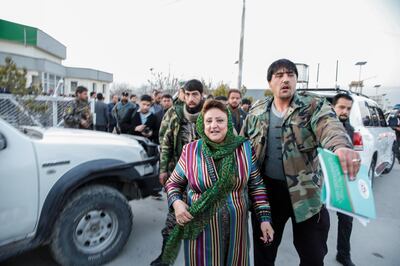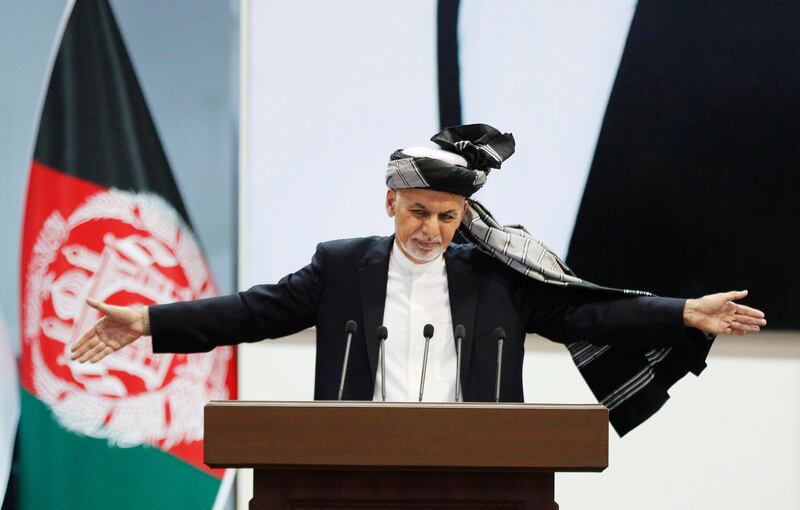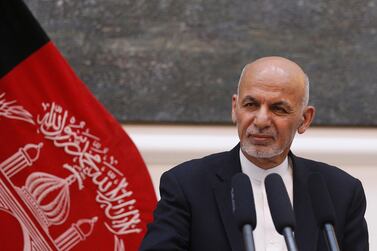From the very earliest days of US attempts to negotiate with the Taliban, there was much fear in Kabul that the Afghan government would be cut out of the process. The Taliban refused to recognise – let alone speak to – Afghan officials. “Intra-Afghan dialogue”, as prospective bilateral talks between Kabul and the Taliban are called, looked to be a distant dream.
There was also much scepticism in those early days from the US's international partners – particularly around the question of who exactly the Americans thought they were dealing with. Was the Taliban a cohesive entity, capable of speaking about deals with a single voice and signing them with a single mind?
In recent weeks, the Taliban has made clear – unambiguously – its intention to come to the negotiating table, and it looks as though a bilateral deal between the US and the militant group will be signed at the end of the month. The signatures will be followed by a week-long period of "reduced violence" and then – assuming no missteps or betrayals – a formal, face-to-face negotiation, for the first time, between Kabul and the Taliban.
But the questions once posed about the Taliban must now be asked about Kabul. Who exactly will the Taliban be talking to following this reduced-violence period? Is Kabul a single voice speaking with a single mind?
Yesterday, the results of Afghanistan's election, which took place five months ago, were finally announced. The incumbent president, Ashraf Ghani, was declared the winner. But as with every presidential election in Afghan history, the results are being heavily disputed and there are widespread allegations of fraud.
Mere hours passed before Abdullah Abdullah, the president’s main challenger, dismissed the results as a sham and promised to form a parallel government.

Mr Ghani won the election, according to Afghanistan’s independent election commission, with 50.64 per cent of the vote against Mr Abdullah’s 39.5 per cent. The 0.64 per cent with which Mr Ghani passed the 50 per cent mark matters – without it, he would have had to face a run-off.
Getting to these figures required months of ordeal, with the commission putting 15 per cent of the votes under audit before clearing them as valid. The commission itself was accused by Mr Abdullah’s side of being under the president’s thumb.
Mr Abdullah’s suspicions of impropriety are not without merit. Incidences of voter intimidation, ballot-box stuffing, and identity fraud are frequently reported by observers in Afghan elections, including this most recent one. These events cannot always be connected to the candidates themselves. Even if the candidates are unwilling to engage in unethical behaviour directly, there are always allies and supporters willing to do it on their behalf, perhaps without their knowledge.
Furthermore, Mr Ghani’s administration has gone to great lengths to strengthen the presidential palace’s grip on ministries in Afghanistan’s already heavily centralised system of governance. Mr Abdullah, who was given the hollow title of “Chief Executive Officer” of the country in a deal brokered by the US after he disputed the last presidential elections five years ago, has spent his time in that position largely cut out of any real decision-making.

But the bitter political fight between the president and his challenger belies a much deeper flaw in Afghanistan’s election. Barely 20 per cent of Afghanistan’s registered voters – who number around 10 million – turned out to vote. This is unsurprising, given that in the run-up to the election the Taliban had threatened waves of attacks at polling stations. In the end, their bark was worse than their bite, but it was enough to scupper any chance at a truly democratic outcome.
Mr Ghani’s 50.64 per cent victory translates to a little over 900,000 actual votes – assuming that the nearly 300,000 of these audited by the election commission were all legitimate. That is a measure of popular support more appropriate for the mayor of Kabul – a city of 4 million – than the president of Afghanistan.
It is important to remember, however, what the low turnout means for Mr Abdullah’s claims of victory. Had the commission given him all he wanted out of the results, his vote count would not have broken 1 million either.
This is hardly a good basis on which to form a parallel government and deepen the cracks in Afghanistan’s negotiating position with the Taliban further. Moreover, such moves contradict Mr Abdullah’s statement in December that he wants to “replace [Mr Ghani] through circumstances in which the country is not lost”.
Mr Abdullah is proving to be more representative of Afghanistan’s ruthless politics than he appears. Perpetually snubbed and permanently embittered by his multiple failures to take power, he has become more practiced at the art of contesting election results than he is at contesting elections themselves. His modus operandi is to exploit divisions and hold the country hostage until he is accorded what he feels is a worthy title.
Mr Ghani called the election results yesterday “a victory for the people’s wishes”. They are more like a victory for the people’s expectations – which, in Afghanistan, tend to be braced for power games and disappointment.
Elections in Afghanistan will not truly reflect the will of the people until the day the Taliban’s reign of terror comes to an end and Afghan leaders demonstrate a genuine desire to put the country first. To get to that point, and to negotiate with the Taliban from a position of true strength, Mr Ghani must unite Kabul’s factions and broker a deal with his challenger that does not require American hand-holding.
Mr Abdullah, for his part, should live up to his word that he can act with leadership in a way in which Afghanistan is not lost.
Through their cynical opportunism, the president, his challenger, and the rest of the Afghan political class have created a situation where the country continues to be run by strongmen, rather than popularly elected democrats. But as old as that model is in the country’s history, it will never be enough to bring peace, prosperity and democratic accountability to 21st century Afghanistan.
Mr Ghani and Mr Abdullah’s quarrel is the real first stage of intra-Afghan dialogue. When they sit across the table from the Taliban next month, they will need to be more than strongmen. They will have to show – together – a strong mind.
Sulaiman Hakemy is deputy comment editor at The National






